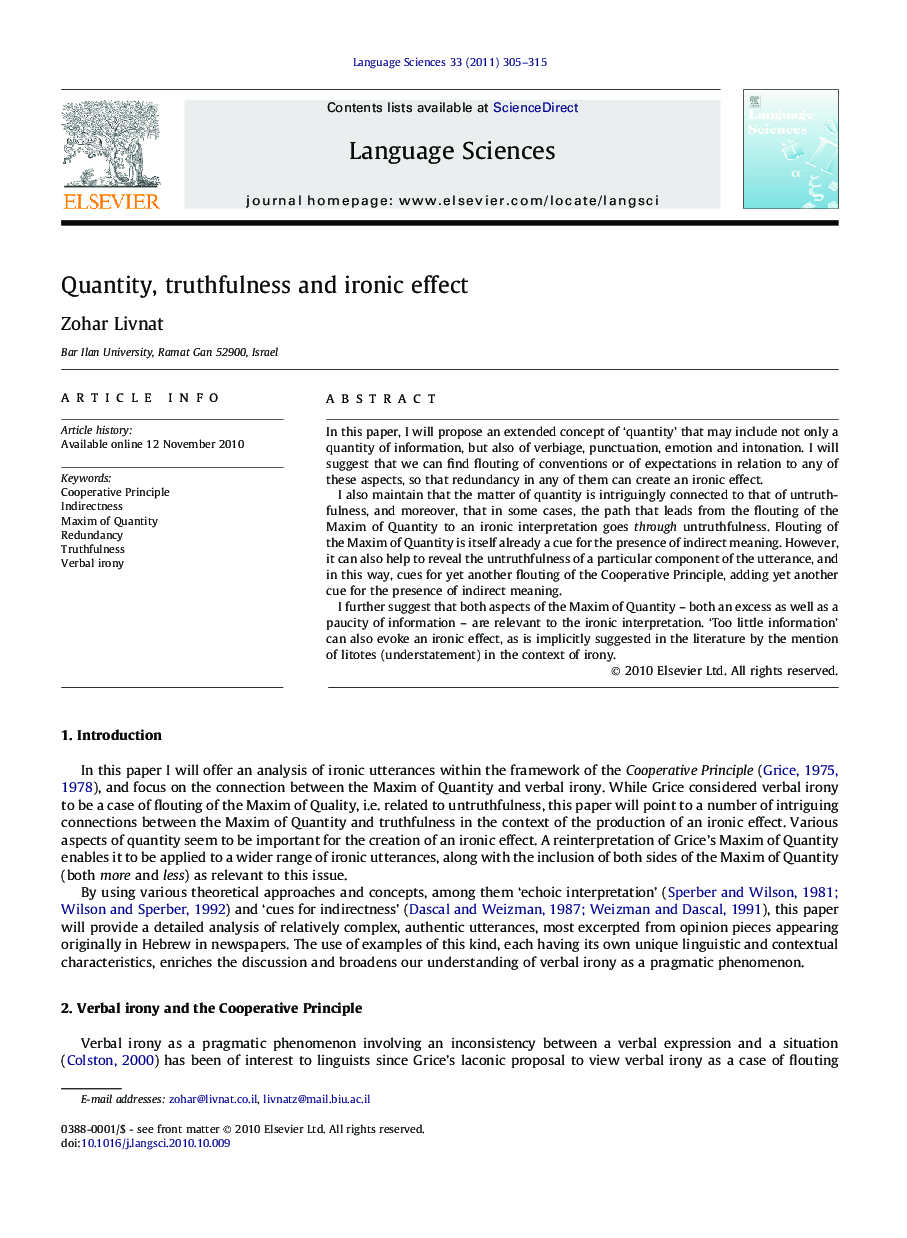| Article ID | Journal | Published Year | Pages | File Type |
|---|---|---|---|---|
| 1103481 | Language Sciences | 2011 | 11 Pages |
In this paper, I will propose an extended concept of ‘quantity’ that may include not only a quantity of information, but also of verbiage, punctuation, emotion and intonation. I will suggest that we can find flouting of conventions or of expectations in relation to any of these aspects, so that redundancy in any of them can create an ironic effect.I also maintain that the matter of quantity is intriguingly connected to that of untruthfulness, and moreover, that in some cases, the path that leads from the flouting of the Maxim of Quantity to an ironic interpretation goes through untruthfulness. Flouting of the Maxim of Quantity is itself already a cue for the presence of indirect meaning. However, it can also help to reveal the untruthfulness of a particular component of the utterance, and in this way, cues for yet another flouting of the Cooperative Principle, adding yet another cue for the presence of indirect meaning.I further suggest that both aspects of the Maxim of Quantity – both an excess as well as a paucity of information – are relevant to the ironic interpretation. ‘Too little information’ can also evoke an ironic effect, as is implicitly suggested in the literature by the mention of litotes (understatement) in the context of irony.
Research highlights► The question of quantity connects intriguingly to untruthfulness. ► ‘Quantity’ might include quantity of verbiage, punctuation, emotion and intonation. ► Both parts of the Maxim of Quantity are relevant for ironic interpretation.
